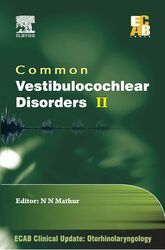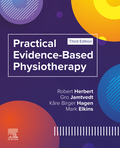「重要なお知らせ:日本語書籍をご購入いただき、eLibraryをご利用の皆さまへ」
エルゼビアは、より快適にサービスをご利用いただくため、システムの重要なアップ
デートを実施いたしました。
現在eLibraryで日本語電子書籍をご利用のお客様は、今後より高いアクセシビリティとセ
キュリティを備えた新しいプラットフォーム「eBooks+」へアカウントが移行されてい
ます。eBooks+のご利用については
こちらよりご利用・ご登録ください。
Book Description
Common vestibular disorders presenting with vertigo contributes significantly to morbidity and mortality. The challenge is to identify the underlying cause of dizziness so as to streamline the treatment and improve quality of life. In day to day ENT practice incidence of dizziness is reported to be 10–15%. It is often associated with a range of otological, neurological, and psychiatric disorder. There are fewer subjects in medicine which keep us more confused than vertigo. Dizziness and vertigo may be disturbing and incapacitating causing problems to people doing regular or specialized tasks such as driving, operating heavy machinery or flying. As the sensations are hard to describe, patients often use the words "dizziness" and "vertigo" interchangeably and inconsistently. Patients with the same underlying disorder might describe the symptoms very differently and might also differently describe the same "dizzy" event depending upon the how the question is directed. The aim of this project is to explore the experience and learning of some of the eminent medical professionals, develop relevant updates, and make them easily available for utilization by the Indian clinical practitioners.


 (0 rating)
(0 rating) 






